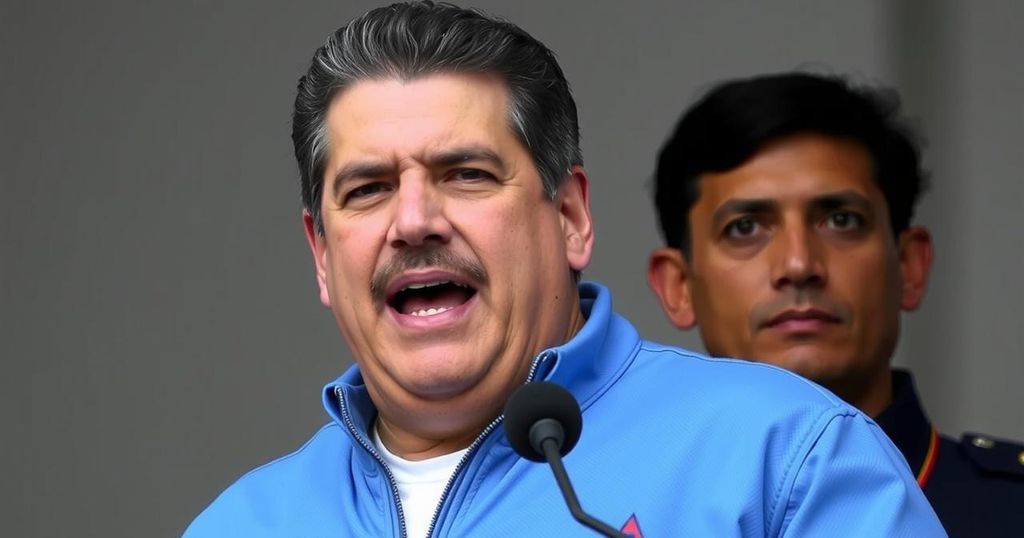Nicolás Maduro is set to begin his third term amid widespread allegations of electoral fraud in the July election where opposition candidate Edmundo González is believed to have won. Despite the opposition’s calls for protests, government crackdowns have provoked fear among citizens. The new U.S. administration’s stance on Maduro is uncertain, with previous efforts to isolate his regime in question as Juan González engages internationally.
Nicolás Maduro is set to commence his third six-year term in office on January 10, amidst accusations of electoral fraud regarding his declared victory in the contentious July 28 elections. Observers, including international bodies and local opposition leaders, have raised doubts about the legitimacy of the elections, where Maduro reportedly won by over one million votes, while opposition candidate Edmundo González is believed to be the real victor. The Carter Center’s validation of opposition tally sheets further substantiates these claims.
The inauguration, to be held by the ruling congressional assembly, marks a milestone in a presidency characterized by rampant corruption, hyperinflation, and increasing food scarcity. Despite calls from the opposition for protests against Maduro’s swearing-in, the government’s extensive crackdown on dissent, leading to over 2,000 arrests, has fostered an atmosphere of intimidation among potential demonstrators. Prominent opposition figure, María Corina Machado, is attempting to mobilize support following her period of concealment.
Edmundo González, who has garnered recognition from the U.S. as the genuine president-elect, has been actively rallying support following his forced exile to Spain after facing an arrest warrant. His recent meeting with President Biden indicates ongoing diplomatic efforts despite Venezuela’s threats against him. Maduro, seemingly attempting to foster better relations with the incoming Trump administration, has conveyed congratulations on Trump’s re-election while asserting the desire for a constructive dialogue.
Venezuela has been mired in a severe political and economic crisis for years, exacerbated by Maduro’s leadership characterized by instability and authoritarian measures. In the context of a highly scrutinized electoral process, Maduro’s recent election victory has been met with international condemnation and recognition of opposition claims of electoral malpractice. As tensions heighten around his impending inauguration, the role of the United States and its foreign policy towards Venezuela remains pivotal, especially regarding upcoming sanctions and diplomatic strategies against Maduro’s regime.
In summary, Nicolás Maduro’s assumption of a new term in office amid accusations of a rigged electoral process and widespread opposition protests underscores the ongoing turmoil in Venezuela. The response from both domestic and international communities will determine the future political landscape, particularly concerning the Biden and Trump’s administrations’ strategies towards Venezuela. The situation remains fluid, with opposition leaders like Edmundo González and María Corina Machado actively seeking to mobilize support against the Maduro regime, while fear persists due to government crackdowns.
Original Source: www.foxnews.com






